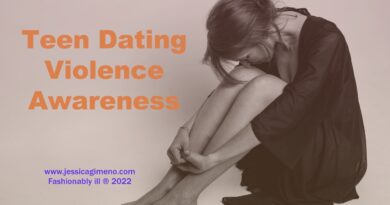5 Ways You Can Manage Depression & Bipolar Triggers
Lately, there has been a lot of buzz about the Netflix series, 13 Reasons Why, which explores the suicide of the main character, Hannah Baker, and the events that led up to it. Many mental health advocates have debated the merits of the show–some saying it creates opportunity for dialogue while others say the show is harmful. Me? I have no opinion either way because I have not seen it. I won’t watch because years ago I lost a friend to suicide. It was a very traumatic event. I know there are people who have lost loved ones to suicide who have positive opinions of 13 Reasons Why. But, for me, watching TV shows and movies that depict suicide has always been a trigger for depression.
What are triggers?
They are events or circumstances that can make us feel depression, anxiety, or other negative mental health consequences. Triggers can make us relive traumatic moments. In people with bipolar disorder 1 and 2, some triggers catalyze mania and hypomania, respectively. As a person with bipolar 2, lack of sleep is a trigger for hypomania followed by depression–sometimes, deep depression. When people don’t know their triggers, they unintentionally make their conditions worse. Thankfully, there are ways we can manage triggers.
5 Ways You Can Manage Your Triggers
- Identify Your Triggers–Talking to my therapist helped me identify my triggers. For my bipolar disorder, mood charts have helped me identify my triggers. With mood charts, I rank and track my moods. On my chart, 5 = mania and 1 = severe depression. I can see patterns that show events that usually precede depression and hypomania. Some events that typically precede depression include the beginning of winter, too many deadlines, and arguments with loved ones. For the first trigger, I have been using light box therapy, an excellent tool for people with Seasonal Affective Disorder (SAD), which is common in people with bipolar disorder (though not limited to people with bipolar). My SAD symptoms are much less severe than they were years ago. When it comes to deadlines, I know to schedule an appointment with my therapist before things get out of hand.
- Minimize Triggers When They Can’t Be 100% Avoided–Some stressors cannot be avoided. I can cut off a friendship with someone who is a toxic friend. But what happens, for example, if you live in region where winter is unavoidable and you can’t move across the country? As described above, light therapy has changed my life for the better.
- Develop An Action Plan–When you face triggers, will you see your therapist? What resources you will use—support groups, close friends and family, faith, exercise, rest, or asking for accommodations at school or work? (By the way, you can download my free Depression Tool Kit here for scripts you can use at school and work to get accommodations.) I talk about having an action plan and being proactive more in my TEDx Talk, “How to Get Stuff Done When You Are Depressed,” here.
- Be Honest With Yourself--Sometimes, when I can’t sleep it is because of hypomania and other medical issues (such as pain from myasthenia gravis and/or polycystic ovarian syndrome). That is not my fault–I didn’t ask for bipolar 2 or any of my other illnesses. Having a mental illness is not a character flaw. But, other times, I have done the wrong thing. One night, I was watching the Anita Hill/Clarence Thomas hearings on YouTube. I should have gone to bed instead of staying up until 2 am–it’s not like the videos of an event that happened nearly thirty years ago wouldn’t be there in the morning. But I stayed up. If I tell myself I’m going to McDonald’s to get a salad, there is a 90% chance I’m going to eat a cheeseburger, fries…and a McFlurry. Their fries are good! Who am I kidding? We must take responsibility for our actions. But, at the same time, don’t beat yourself up if you fall off track. We’re only human. As long as we are live, there is hope.
- Share Your Triggers With People You Trust–It’s not appropriate to share my triggers with everyone–I’m not going to talk about my bipolar disorder with my high school students. But it helps to share your triggers with people close to you so they can help you and notice things like when you are entering a depressive (or manic or hypomanic) episode. When I talk to friends and it’s getting late, they say, “Don’t you have to go to bed now? We can always finish our conversation later.” When I’m having fun, it’s easy to ignore my bipolar bedtime. Nobody gets through this alone.
–Your Stylist, Jessica Gimeno






I just wanna share my experience in medical marijuana and it helps me deal with my health conditions. I’ve been suffering from chronic pain for how many years, but then when I learned that medical marijuana can help and cure sickness such mine like this article about a marijuana strain blimburnseeds.com/news/marijuana/legalization/to-regulate-is-to-be-responsible/attachment/jorge-drexler-2/. Cbd and thc are also new to me and I don’t even smoke.
If this is true I can’t find any solid conclusive evidence that speaks to its efficacy.
Love your article!